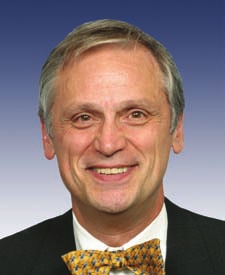Growing pressures on water resources worldwide are forcing nations to take remarkable steps to address the increasingly dire situation.
Rising populations, swelling urban centres and the mounting threat of climate change have in recent decades ensured limited access to water for drinking and agriculture, as well as portending a risk to human health.

According to a recent United Nations report, over 80 percent of countries have reformed their water laws in the past 20 years, a move that has, in most cases, produced significant impacts on development.
The effort is nonetheless still underway in some nations, apparently spurred by local and international exigencies, and greeted with mixed feelings.
In the United States of America for instance, the Senator Paul Simon Water for the World Act of 2012 introduced last November by sponsor, Representative Earl Blumenauer, is presently being considered by the House Committee on Foreign Affairs. Mr. Ted Poe, representing Texas’s 2nd Congressional District, is the Bill’s cosponsor.
According to Congressman Blumenauer, who is representing the Third District in Oregon State in the U.S. House of Representatives (in the 112th Congress), the Bill is an improvement on the Foreign Assistance Act of 1961 and the Senator Paul Simon Water for the Poor Act of 2005, in respect of which the U.S. has reportedly invested $3.4 billion in water programmes around the world.
In 2003, the United Nations passed Resolution A/RES/58/217 declaring 2005-2015 the International Decade for Action: “Water for Life”, a development believed to have influenced the U.S. Congress passing the Senator Paul Simon Water for the Poor Act of 2005 (WPA). The WPA requires “the Secretary of State, in consultation with other U.S. government agencies, to develop and implement a strategy to increase affordable and equitable access to safe drinking water and sanitation within the context of sound resources management in developing countries.”
Blumenauer’s Legislative Assistant, Michael Harold, said at the Capitol Hill in Washington, District of Columbia (DC), that the Senator Paul Simon Water for the World Act of 2012 seeks to amend the WPA regarding the strategy to further the U.S. foreign assistance objective to provide access to safe water and sanitation in developing countries to: transfer primary authority from the Secretary of State to United States Agency for International Development (USAID); include hygiene; and, include designation of high priority countries.
Harold noted that the Bill (Senator Paul Simon Water for the World Act of 2012) amends the Foreign Assistance Act of 1961 to direct: the Administrator of the USAID to designate a Global Water Coordinator to coordinate and oversee water, sanitation, and hygiene assistance, and the Secretary of State to designate a Special Advisor for Water Resources to coordinate and oversee policy relating to water and sanitation assistance.
While directing the Administrator to maintain a webpage for information on U.S. water, sanitation, and hygiene foreign assistance programmes, the Bill sets forth principles to ensure that water, sanitation and hygiene (WASH) projects carried out under the Foreign Assistance Act of 1961 and the WPA achieve maximum impact.
“The Bill is a re-authorisation of the WPA and it will improve access to water and sanitation by needy countries and appropriate money for the purpose, and where the money should be spent. The U.S. spends about $600 million yearly to improve access to water in developing countries,” Harold stated.
International agency, WaterAid, stressed that, in introducing the Bill, the U.S. Congress has taken an essential step in improving existing US international development programmes seeking to address the water and sanitation crisis, as well as reaching the sanitation Millennium Development Goal (MDG) target to halve the proportion of people with access to safe drinking water and basic sanitation by 2015.
Lisa Schechtman, WaterAid in America’s Head of Policy & Advocacy, said, “The Water for the World Act is a critical opportunity for the US Government to take decisive steps towards further alleviating the suffering of those worst affected by the global water and sanitation crisis, and at the same time contribute to broader foreign policy objectives, such as child survival and poverty reduction.

“In addition, the legislation advances key principles of aid effectiveness, ensuring that coordination and monitoring and evaluation are improved so we can be sure we are making the most of the dollars invested. The bipartisan support for the Water for the World Act only reinforces the value of WASH programmes in and of themselves and as a tool for amplifying US leadership around the world.”
In Nigeria, the National Water Resources Bill sent to the National Assembly five years ago is yet to see the light of the day. After missing out of being passed into law in the Sixth National Assembly (2007-2011), it was apparently reintroduced to commence a fresh process in the current and Seventh National Assembly (2011-2015).
Recognising the importance of water resources management for the nation’s economic development and the wellbeing of its citizens, government adopted numerous initiatives bordering the review of an existing water policy, supervising a World Bank-sponsored study as well as an EU-funded report.
Upon its enactment, the Act will replace the Water Resources Decree 101 of 1993, and repeal and modify other related laws. Among other submissions, the new law ensures the role of the Federal Ministry of Agriculture and Water Resources as a policy making body with responsibility to establish national strategies and set general standards for water resources management across the country will be strengthened and its capacity for maintaining information systems on various aspects of water resources management in the country enhanced.
The proposed legislation has similarly met with a barrage of criticism, essentially by civil society activists, who allege that it is a government agenda aimed at shifting its responsibility to the private sector. They stressed that besides laying too much emphasis on private sector participation, the Bill possesses several components that are alien to the country – in reference to inputs made by the World Bank, EU and the consulting firm of Louis Berger/Haskoning.
Babatope Babalobi of the Bread of Life Foundation said: “We are not too happy with the Bill’s provisions, which copiously promoted the role of the private sector as being primarily responsible for the delivery of water and sanitation services. The citizen’s right to access to water can only be guaranteed by efficiently managed publicly-owned water supply agencies.
“The government should not abdicate its responsibility in the water sector for the private sector. Rather, government should through this Bill promote the democratisation of water management through Public Utility Partnerships (PUPs) rather than Public Private Partnerships (PPPs).”
Nigeria’s Millennium Development Goals (MDG) target is to supply 74 percent of its population with safe water by 2015 and 69 percent of the population with adequate sanitation. According to statistics presented by the Head of WaterAid in Nigeria, Michael Ojo, only 58 percent have water and 32 percent have sanitation.
“This means that nearly 64 million people do not have access to safe drinking water with 103 not having access to sanitation. At current rates of progress, Nigeria will miss the water target by 18 years (2033) and is completely off track on its sanitation target, coverage having fallen from 37 percent in 1990 to 32 percent in 2008 (with the most current update showing even further decline to 31 percent for 2010),” he said.
However, the United Nations survey of over 130 national governments on efforts to improve the sustainable management of water resources, focuses on progress towards the implementation of internationally-agreed approaches to the management and use of water, known as Integrated Water Resources Management (IWRM).
Amid increasing and conflicting demands on the world’s water supply, IWRM integrates domestic, agricultural, industrial and environmental needs into water planning, rather than considering each demand in isolation.
The latest survey is intended to inform decision-making at the Rio+20 Conference in Rio de Janeiro, Brazil, next month.
The survey, which was co-ordinated by the UN Environment Programme (UNEP) on behalf of UN-Water (the UN inter-agency co-ordination mechanism for freshwater issues), asked governments for their feedback on governance, infrastructure, financing, and other areas relating to water management, to gauge how successful countries have been in moving towards IWRM.
Overall, 90 percent of countries surveyed reported a range of positive impacts from integrated approaches to water management, following national reforms.
While 110 wastewater treatment plants have been built in Tunisia and access to water supply increased from 15 percent in 1990 to 50 percent in 2011 in Chad, Ghana rehabilitated 40 percent of its irrigation schemes for more effective water use and productivity.
By Michael Simire
